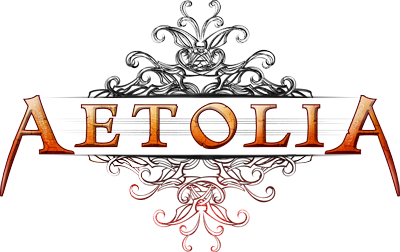4.7 Ancient Rites of Unity
When one person falls in love with another, they may wish to unite their souls
in the eyes of the Gods. Echoing the great Unison of Earth and Death, the
lovers become one in a ceremony of unity.
Those who wish to unite procure a ceremonial blade. The intended then strips a
piece of cloth from their clothing or bedding. This cloth is bound to the
blade's hilt and the owner thereafter sleeps with the blade beneath their
pillow for one full month. The blade is then presented to the beloved as a
proposition of marriage, or in some regions, left upon the family's doorstep in
the night. This is representative of the Earth Divinity's love-gift to Death,
giving of oneself to show adoration. If the beloved denies the proposition, the
blade is kept as a gift. If the beloved accepts the proposition, they cut their
own flesh with the blade and, with the blood still wet upon its edge, return
the sword to the intended. This is representative of Death's love-gift to
Earth, of flesh and new life. When the sword is returned, the couples are said
to be engaged (HELP ENGAGEMENT).
For at least two seasons, the intended and beloved traditionally could not see
and especially not speak to one another, but rather must rely on messages in
writing, or on third party messengers. It was once considered an extremely ill
omen if the two were to speak to one another during this contemplative period.
At the unison ceremony, it is traditional for one of the wedded to wear a clay
mask. The intended is typically accompanied by three friends or family members,
representative of Earth's three siblings. The other traditionally wears a dark
veil and cloak and is accompanied by two persons of their choice,
representative of Death's two siblings. The youngest of the wedding companions
is the Messenger, and bears the engagement blade throughout the proceedings.
Though the Messenger was once typically a child, it is now common for the
Messenger to be between 18 and 25 years of age.
Ceremonies differ regionally, but in every case the beloved and intended plead
with the person performing the marriage, called the Unifier. They each present
their case, describing their love for one another, ceremonially asking
permission to be united into one spirit and flesh. The more piteous and
desperate the plea, the better. In some cases, astronomical bribes are offered
to the Unifier, to prove the sincerity of their love. The Unifier then takes
the engagement blade from the Messenger. The intended and beloved offer their
hands. The Unifier slices their palms with the blade, and the two join palms
and lips as they are formally united.
Over time the "engagement blade" has changed its form - in many places, the
exchanged item is not even a weapon. Lovers sometimes propose unity using
jewelry, food, or even slain enemies, but any offering is usually daubed with
blood. This variation on the tradition eventually led to modern customs, as
outlined in HELP MARRIAGE.
Note that to undergo the Rites of Unity, both parties must be level 30 and
have at least 75 hours of online time.
Syntax:
PROPOSE UNITY TO <whomever> WITH <whatever>
BREAK PROPOSAL
SUNDER UNITY WITH <whomever>
